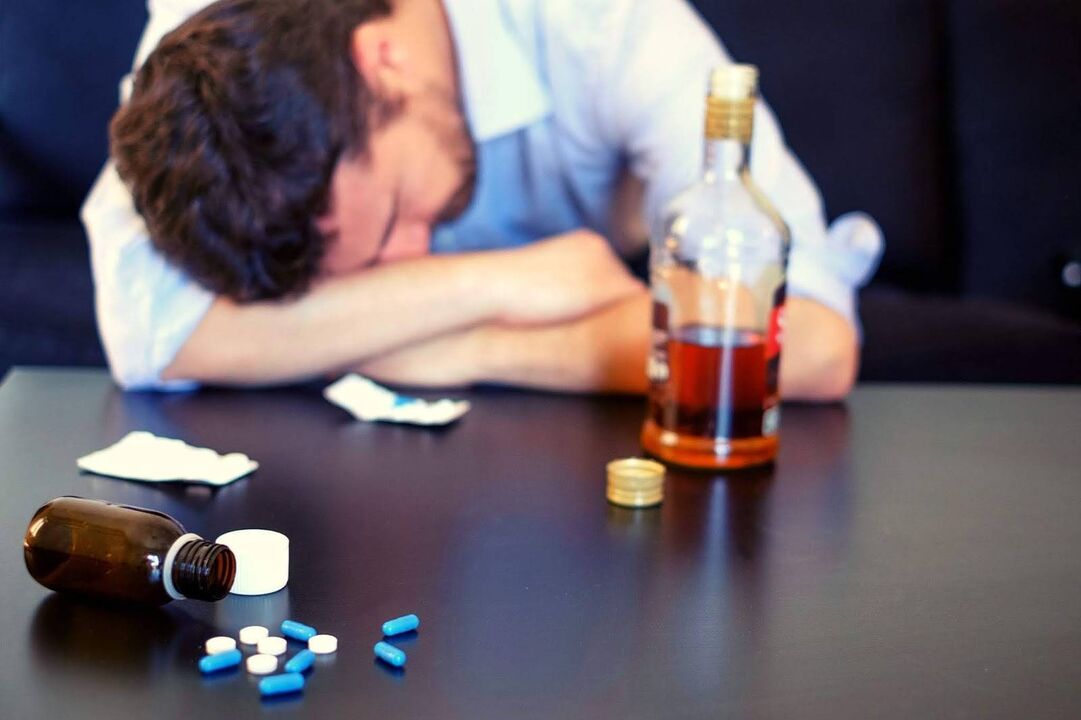
what are antibiotics
Why don't doctors recommend drinking alcohol during antimicrobial treatment?
Slow elimination of half-life products
- colic;
- tremor;
- nausea;
- Headache;
- facial redness;
- stomach cramps;
- Puzzled;
- increased sweating;
- increased heart rate;
- Feeling like I can't breathe.
increased toxicity
- kidney;
- brain;
- Cardiovascular System;
- gastrointestinal tract.
weakened immune system
Decreased therapeutic effectiveness of antibacterial drugs
Increased likelihood of drug side effects
- allergic reactions (such as skin rashes);
- Oral candidiasis;
- Development of digestive disorders: diarrhea, nausea, or vomiting;
- Dysbiosis occurs due to disruption of intestinal flora;
- Acute headache, dizziness, lack of sleep at night, and daytime drowsiness;
- Cardiovascular system dysfunction;
- Changes in the urinary organs (oliguria or frequent urination) and the musculoskeletal system (myalgia and arthralgia).
How long after stopping antibiotics can I drink alcohol?
- People with no history of chronic disease and who have not received chemotherapy or radiation therapy in the past 12 months can drink light alcohol for 24 hours after completing antibiotic treatment.
- Patients taking metronidazole should avoid alcohol for 2 days after their last injection or dose.
- After completing a course of tinidazole, alcohol consumption remains prohibited for 72 hours. Patients with a history of hepatitis or cirrhosis should avoid alcohol for at least 2 weeks after completion of antibiotic therapy.
Which antibacterial drugs can be taken with alcohol?
- Cephalexin.
- Amoxicillin.
- Ciprofloxacin.
- Azithromycin.
- Amoxicillin-clavulanic acid.
- Linezolid. This product is effective against bacteria that are resistant to other types of antibiotics. This medicine is used to treat skin infections.
- Fluoroquinolones. Due to the direct effect of the drugs on the central nervous system, their combination with alcohol is very dangerous. Patients who make a mistake may slip into a coma.
- Aminoglycosides. These drugs are even incompatible with other drugs, especially drinks containing ethanol.
- Cycloserine. Used to treat lung infections and tuberculosis. Combination with alcohol can lead to the development of convulsive syndrome.
- Lincosamides. Such antibiotics can have negative effects on the liver and central nervous system when consumed with alcoholic beverages.
- Tinidazole 500 mg. Antibacterial drugs used to destroy single-cell pathological microorganisms. Included in the group of drugs prescribed for relief of Helicobacter pylori disease in patients.
- Metronidazole 250 mg. An antibacterial drug used to treat vaginal and tooth infections. It is added to ointments and gels used to treat bedsores and trophic ulcers.
- Cephalosporins can cause severe alcohol poisoning.
What if they are used at the same time?
- Drink 1. 5-2 liters of dilute potassium permanganate solution.
- Perform artificial vomiting.
- Take intestinal adsorbent (activated charcoal can be ground finely and diluted with water at a rate of 1 tablet per 10 kg of body weight).
- Call your doctor and tell him or her that the last pill was removed and explain why and when this happened. Your doctor will decide if the dose needs to be adjusted on a case-by-case basis.































